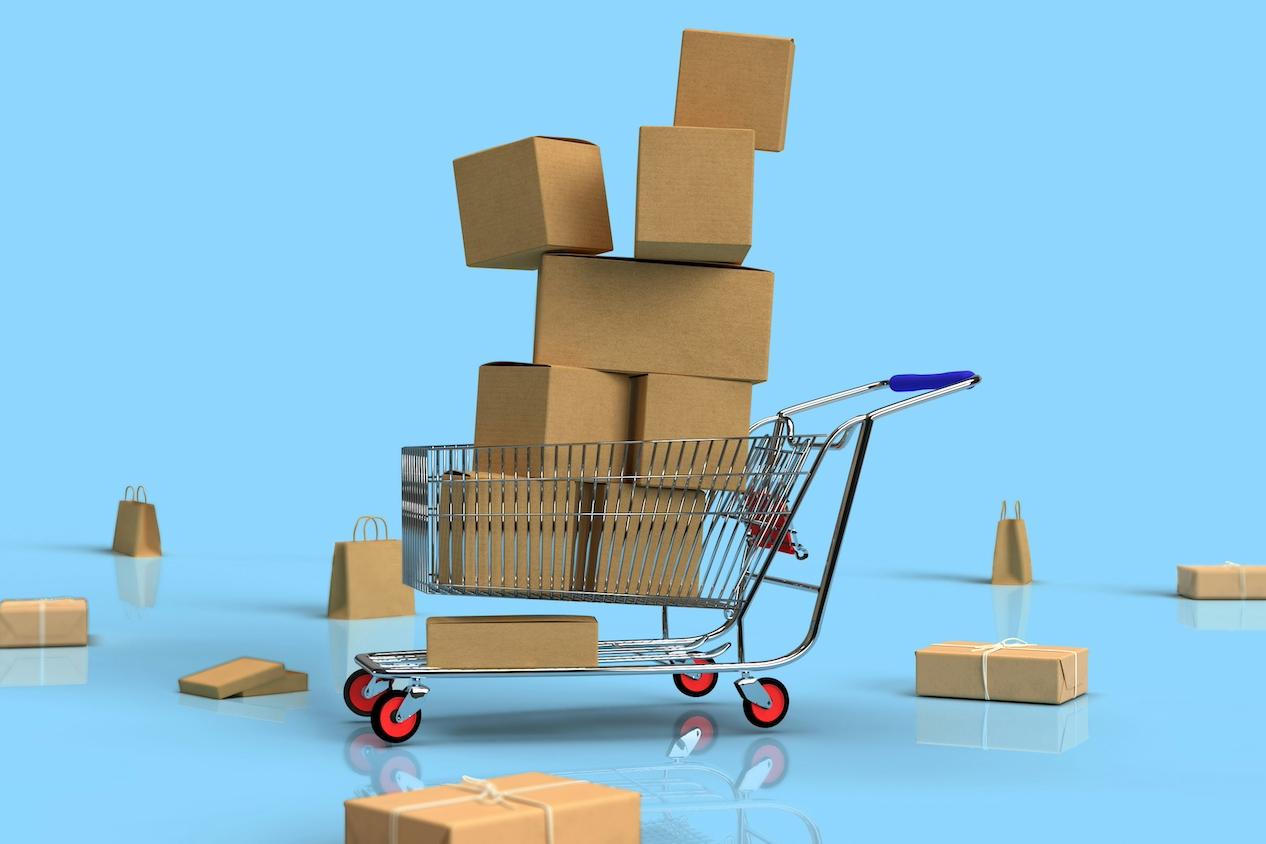Hearing the words “sustainable shopping” and “online” in the same sentence might raise red flags about emissions and packaging waste, and rightly so. But online shopping can be better for the environment. When done right, it has the potential to replace multiple car trips to stores with one delivery vehicle, which addresses the biggest environmental impact of shopping: the carbon footprint.
By consolidating orders, sticking to slower delivery options, and replacing — not supplementing — in-person trips, you can cut the impact of your online orders and gain access to better-for-the-planet products that might not be at your local stores. These sustainable sites can help you get started.
EarthHero
EarthHero is a one-stop shop for household goods, cleaning supplies, pet supplies, and personal hygiene and beauty products. Every product featured on the site meets the store’s sustainable sourcing pillars. That means the products are made with sustainable ingredients and materials, the brands are ethical and treat employees fairly, the packaging and waste generated are as minimal as possible, and the purchase somehow gives back to people or the planet. EarthHero also emphasizes working with female-owned, BIPOC-owned and LGBTQIA+-owned brands in an effort to improve representation in the sustainability space.
EarthHero is a B Corp, a certification awarded to for-profit businesses that use their profits and growth to benefit society and the environment. It’s also a member of 1% For The Planet, a group of companies that commit to donating at least a percent of their annual sales to environmental initiatives and organizations. And EarthHero became Climate Neutral Certified in 2021, which means the store offsets its yearly emissions and is lowering its overall emissions with the goal of eventually reaching zero.
Thrive Market
Thrive Market dubs itself an “online, healthy grocery store” that wants to make healthy foods affordable for everyone. The certified B Corp ships organic and sustainable products to all 48 of the lower United States. It’s the first online-only retailer to accept electronic benefits from the Supplemental Nutrition Assistance Program (SNAP) and offers a price-match program if you find a cheaper price elsewhere.
Thrive has an evolving list of over 500 ingredients that it will not allow in the products it sources, either because it deems them unhealthy for people or the planet or because their impacts aren’t well understood. The store is also Climate Neutral Certified, with the goal of reaching negative overall carbon emissions by 2025. All of its warehouses are TRUE Certified for Zero Waste, which means that it recycles or repurposes at least 90 percent of the materials that enter its warehouses every year.
Unfortunately, Thrive is a membership-based store, so shoppers must sign up for a membership at a fee of $60 annually or $12 monthly, which the company says is “to protect our brand partners who are not comfortable with our deeply discounted prices being publicly visible.” Though, Thrive has donated over 2.8 million memberships to families in need.
Made Trade
If you’re searching for ethically made, sustainable furniture and housewares, Made Trade is a woman-owned company specializing in just that. The more than 130 brands, small businesses and artisan collectives with products featured on the site were vetted based on equity, sustainability and transparency. The company also verifies safe working conditions and livable wages along the supply chains.
Every product meets at least two of Made Trade’s eight core values: Fair Trade certified, handcrafted, made in the United States, BIPOC-owned, made with sustainable materials, upcycled or recycled, vegan and women-owned. And the store was Climate Neutral Certified in 2021.
Wear Pact
Calling itself “Earth’s Favorite,” Wear Pact offers certified sustainable clothing. The store works with Fair Trade Certified factories to ensure safe working conditions and support for workers and the local community. The rigorous, global certification focuses on improving the lives of factory workers, protecting the environment and building transparent supply chains.
On the environmental side, Pact measures and offsets its carbon emissions through SimpliZero and is certified by the Global Organic Textile Standard, which means its clothing is made of organic fibers on farms that maintain and build soil health without using pesticides or synthetic fertilizers.
Pact also partners with Give Back Box to take back your gently used clothing, either in the box your order came in or any other box, and give it to nonprofits that need it.
Back Market
Back Market is a platform where vetted refurbishers can sell restored tech like smartphones, laptops, and gaming consoles. The certified B Corp ensures refurbished devices are high-quality and resold at fair prices to fight e-waste. You can also sell them your old tech instead of sending it to a landfill.
On average, “a refurbished smartphone uses 91.3 percent less raw materials, 86.4 percent less water, generates 89 percent less e-waste, and puts 91.6 percent less carbon emissions into our atmosphere compared to brand new,” according to Back Market.
This story is part of Shopping Month in TriplePundit’s Sustainable Living Challenge, where we explore simple ways to buy less, keep things longer and shop sustainably as needed. Learn more and take the challenge here.

